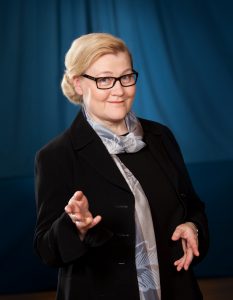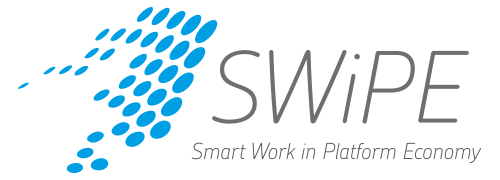
In the spring of 2016 the research programme of the Strategic Research Council tasked researchers to consider, and look for in their funding applications, answers and responses to rapid changes in work, skills and working life. Each project selected to join the research programme needed also to respond to questions concerning education and immigration.
The SWiPE consortium outlined as one of the key trends affecting of its society and economy the ways in which the relationships between work, livelihoods and skills change as a result of change in the global marketplaces and the digitalisation of society and economy. The platform economy, changes wrought by digitalisation on work and new types of entrepreneurship are transforming the contents and ways of doing work. In the future, for more and more employees, work will become more entrepreneurial. Many of these changes have multi-dimensional connections and impacts to the processes of public sector organisations, companies and even nation states. In order to create an analytical overview, it is important to study both micro and macro-level changes with diverse methods and datasets. By studying the aforementioned phenomena and by promoting experiments in the platform economy the SWiPE consortium will generate new knowledge and disseminate best practices, so that smart work in the platform economy may create future competitive advantage for Finland.
The SWiPE consortium is a project composed of three research organisations (the University of Turku, ETLA and TTL) which examines ongoing changes in work and the economy with the help of a large multidisciplinary group of researchers, in cooperation with a number of organiusations and international colleagues. Our research is well under way: we are currently examining work in the platform economy, its new forms and ways in several different educational and occupational groups, we also study platform economy start-ups, and we analyse the regeneration capacity and ways of work of more established companies. In the public sector, we analyse among others digitalisation of healthcare work, opportunities for teleworking and the changes it brings to work communities. In the context of the ongoing changes in working life, learning is a central factor affecting change and renewal in work. The SWiPE consortium also studies renewal in training as a part of the broadening needs of working life; we study learning in work in an in-house industrial training college. In universities we study how a strategic decision to become and entrepreneurial university is achieved in practice and what the long term effects are in working culture, research and teaching. The University project has already expanded into the international GEUM-research project with the aim of, among others, developing flexible toolkits for evaluating the entrepreneurial activities of Universities (this is in cooperation with, among others, Stanford University, the University of North Carolina and Leiden University).
The Strategic Research Council programme concepts are designed to emphasise interaction with stakeholders and the general public a key element from the outset of the research projects. As key stakeholder groups in the SWiPE consortium, Sitra, Kone, the Association of Finnish Family Firms and in migration issues the Association of Finnish Settlement Houses, CREME at the University of Birmingham, as well as the Start-up-Refugees community are experts in practical impact of our research results. Our goal is to find and analyse best practices and to bring the knowledge of international colleagues into use among our stakeholders. Reaching out to the scientific community and sharing of research results is central objective of the multidisciplinary SWiPE-consortium. In August, a more specifically 16-18/08, we will organise an international conference WORK2017 on the theme of “Work and Labour in the Digital Future” ( www.WORK2017.fi ). The conference will draw nearly three hundred working life researchers from a number disciplinary perspectives. Do join! I’ll see you in August in Turku!
This blog post by Anne Kovalainen was originally published (in Finnish) on the website of the Strategic Research Council.
